Filter by
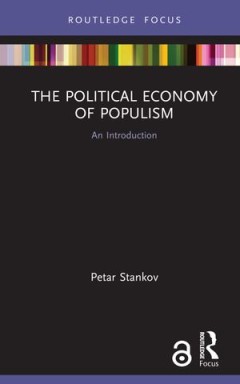
The Political Economy of Populism : An Introduction
The Political Economy of Populism explores the interplay between identity, the economy and inequality to explain the dynamics of populist votes since the beginning of the 20th century.The book discusses the political and economic implications of populist governance using data on populist incumbencies and linking it to historical data on the macro economy and democracy. Chapters draw from the mo…
- Edition
- -
- ISBN/ISSN
- 9781000200713
- Collation
- -
- Series Title
- -
- Call Number
- 650
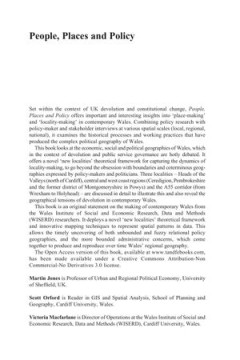
People, Places and Policy
The Open Access version of this book, available at www.tandfebooks.com, has been made available under a Creative Commons Attribution-Non Commercial-No Derivatives 3.0 license. Set within the context of UK devolution and constitutional change, People, Places and Policy offers important and interesting insights into ‘place-making’ and ‘locality-making’ in contemporary Wales. Combining pol…
- Edition
- -
- ISBN/ISSN
- 9781315683904
- Collation
- -
- Series Title
- -
- Call Number
- 650
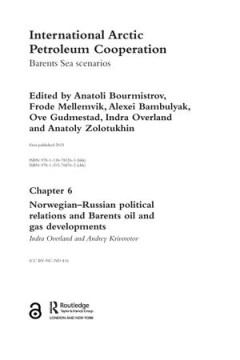
Norwegian–Russian political relations and Barents oil and gas developments
The political relationship between Norway and Russia will influence the development of Barents Sea oil and gas. The state plays a decisive role in both the Norwegian and Russian parts of the sea. It does so as a regulator, through taxation, and through the national oil and gas companies, Gazprom, Rosneft, and Statoil. Thus, if the two states have a good relationship characterized by mutual trus…
- Edition
- -
- ISBN/ISSN
- 9781138783263
- Collation
- -
- Series Title
- -
- Call Number
- 650
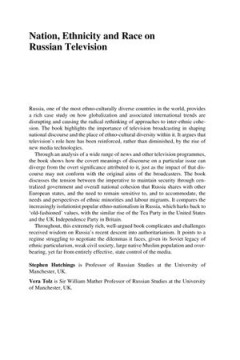
Nation, Ethnicity and Race on Russian Television
Russia, one of the most ethno-culturally diverse countries in the world, provides a rich case study on how globalization and associated international trends are disrupting and causing the radical rethinking of approaches to inter-ethnic cohesion. The book highlights the importance of television broadcasting in shaping national discourse and the place of ethno-cultural diversity within it. It ar…
- Edition
- -
- ISBN/ISSN
- 9781138853287
- Collation
- -
- Series Title
- -
- Call Number
- 650
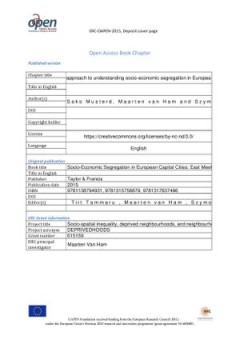
A multi-factor approach to understanding socio-economic segregation in Europe…
Growing inequalities in Europe, even in the most egalitarian countries, are a major challenge threatening the sustainability of urban communities and the competive- ness of European cities. Surprisingly, though, there is a lack of systematic and representative research on the spatial dimension of rising inequalities. This gap is filled by our book project Socio-Economic Segregation in European …
- Edition
- -
- ISBN/ISSN
- -
- Collation
- -
- Series Title
- -
- Call Number
- 650
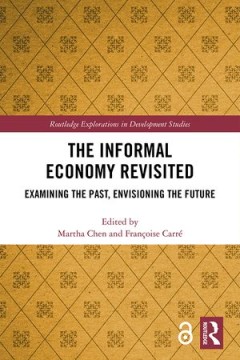
The Informal Economy Revisited ;:Examining the Past, Envisioning the Future
This landmark volume brings together leading scholars in the field to investigate recent conceptual shifts, research findings and policy debates on the informal economy as well as future challenges and directions for research and policy. Well over half of the global workforce and the vast majority of the workforce in developing countries work in the informal economy, and in countries around the…
- Edition
- -
- ISBN/ISSN
- 9780429577499
- Collation
- -
- Series Title
- -
- Call Number
- 650
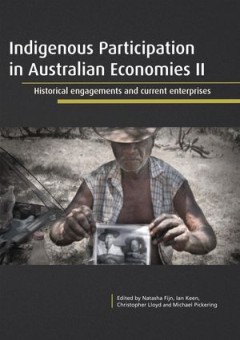
Indigenous Participation in Australian Economies II: Historical engagements a…
This is the second volume to emerge from a project on Indigenous participation in the Australian economy, funded by an Australian Research Council (ARC) Linkage Grant, and involving the cooperation of the School of Archaeology and Anthropology at The Australian National University and the National Museum of Australia. The Chief Investigators were Ian Keen, Chris Lloyd, Anthony Redmond, the Part…
- Edition
- -
- ISBN/ISSN
- 9781921862830
- Collation
- -
- Series Title
- -
- Call Number
- 330 IND i
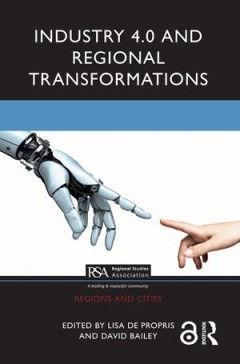
Industry 4.0 and Regional Transformations
This edited volume brings together a group of expert contributors to explorebthe opportunities and the challenges that Industry 4.0 (smart manufacturing) is likely to pose for regions, fi rms and jobs in Europe. Drawing on theory and empirical cases, it considers emerging issues like servitization, new innovation models for local production systems and the increase in reshoring.Industry 4.0 and…
- Edition
- -
- ISBN/ISSN
- 9780429603587
- Collation
- -
- Series Title
- -
- Call Number
- 650
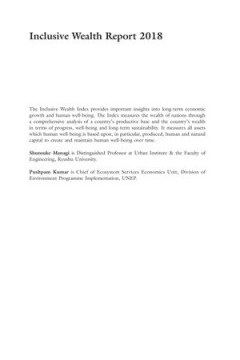
Inclusive Wealth Report 2018
The Inclusive Wealth Index provides important insights into long-term economic growth and human well-being. The Index measures the wealth of nations through a comprehensive analysis of a country's productive base and the country’s wealth in terms of progress, well-being and long-term sustainability. It measures all assets which human well-being is based upon, in particular, produced, human an…
- Edition
- -
- ISBN/ISSN
- 9781351002080
- Collation
- -
- Series Title
- -
- Call Number
- 650
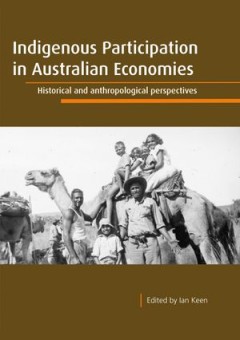
Indigenous participation in Australian economies: Historical and anthropologi…
This volume seeks to contribute to the body of anthropological and historical studies of Indigenous participation in the Australian colonial and post colonial economy. It arises out of a panel on this topic at the annual conference of the Australian Anthropological Society, held jointly with the British and New Zealand anthropological associations in Auckland in December 2008. The panel was org…
- Edition
- -
- ISBN/ISSN
- 9781921666872
- Collation
- -
- Series Title
- -
- Call Number
- 330 KEE i
 Computer Science, Information & General Works
Computer Science, Information & General Works  Philosophy & Psychology
Philosophy & Psychology  Religion
Religion  Social Sciences
Social Sciences  Language
Language  Pure Science
Pure Science  Applied Sciences
Applied Sciences  Art & Recreation
Art & Recreation  Literature
Literature  History & Geography
History & Geography